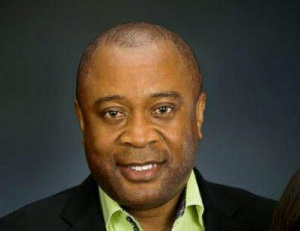- Home - News
- TWI News | TV
- Polls
- Year In Review
- News Archive
- Crime & Punishment
- Politics
- Regional
- Editorial
- Health
- Ghanaians Abroad
- Tabloid
- Africa
- Religion
- Election 2020
- Coronavirus
- News Videos | TV
- Photo Archives
- News Headlines
- Press Release
Opinions of Tuesday, 22 December 2020
Columnist: Dr. Eke Agbai
How Rawlings’ strong and abstract transformational leadership paved way for modern day Ghana
The first American to translate Dante Alighieri’s Divine Comedy and one of the fireside poets- Henry Wadsworth Longfellow in one of his writings ‘A Psalm of Life’ had this to say: “Lives of great men all remind us, we can make our lives sublime, and, departing, leave behind us Footprints on the sands of time”.
This quotation best describes the life and time of Flight lieutenant Jerry John Rawlings, the former president of Ghana, who died November 12, 2020, at the age of 73 after a brief illness. J. J., as he was fondly called by the downtrodden of Ghana who have come to develop a great affinity for him, demonstrated uncommon characteristics and great leadership skills from his early days at Achimota school back in 1966. Born in Accra, Ghana on June 22, 1947 to a Ewe mother and a Scottish father, J.J. Rawlings from childhood developed a great interest in planes. His parents wanted another career for him, but Jerry had other interests. He joined the military and was commissioned as flight Lieutenant.
In 1977, young J.J. married his sweetheart Nana Konadu Agyeman, and the marriage is blessed with 4 children - Zanetor, Yaa Asantewaa, Amina and Kimathi. In 1979, just two years after his marriage, the young military pilot became very disillusioned about the state of affairs and level of corruption among the senior military leadership. In what was then seen as the greatest demonstration of patriotism, Jerry Rawlings instead of concentrating on settling his young marriage, chose to put the affairs of the country first. He felt that the well-being of his country and countrymen/women were paramount and should be accorded precedent.
In May 1979, he led the first military coup d’état. It was unsuccessful. His aim was to fight the corruption of the hierarchy led by General Fred William Akuffo. He was court-martialled and jailed. In a dramatic turn of events, while in jail, a group of young military officers broke through the prison and freed him. Jerry and his Armed Forces Revolutionary Council (AFRC) took over the reign of government, with him as the Head of State. He promised to return the country to a democratically elected government and a promise he kept with the election of President Hilla Limann.
In 1981, Jerry John Rawlings yet again staged another coup and overthrew the People's National Party elected government of Limann and took over the leadership of the Provisional National Defence Council. In 1992, Rawlings resigned from the army, founded the National Democratic Congress (NDC); the umbrella under which he contested the 1992 presidential elections and won. In 1996, he was re-elected for a second.term in office and left office in 2000 to be succeeded by John Evans Atta Mills as the NDC flagbearer when John Kufuor, an opposition won the election. Rawlings was credited with allowing a free and fair election without interference, something very uncommon in Africa at the time, as it were.
Twenty years after Rawlings left political office, I may venture to say that no discussion divides Ghanaians more than their opinions regarding Flight Lieutenant Jerry John Rawlings. His lingering political influence on Ghana may be second only to the legend Kwame Nkrumah. May I say in passing that Rawlings had one of the best Ghana/ Nigeria foreign policy. In 1988, he signed a pact leading to a joint commission for cooperation between Ghana and Nigeria.
It is important to mention the point that while many human rights organizations have condemned Rawlings violent revolution of 1979, which later led to the executions of eight army generals- Kotei (a sand-hurst trained intelligent officer), Joy Amedume, Roger Felli, and Utuka and three former Ghana heads of state - Acheampong, Akuffo (also a sand hurt England trained intelligent officer) and Akwasi Afrifa. However, many observers and analysts still attribute Ghana’s economic growth and prosperity to the somewhat violent ‘house cleaning’ foundation led by Rawlings during those turbulent periods.
Ghana currently leads in industrial growth by dropping the dogma.
As a way to heal the wounds inflicted on the psyche of the people during those troubled era, President John Kufuor who came into office in 2000, instituted the National Reconciliation Commission (NRC). During the NRC exercise, Atta Boakye, who was only 21 years old when he was arrested described the horrible experience of his days in a Rawlings instituted detention camp. As Rawlings himself later said to justify it as a part of the tough actions/decisions in the journey to cleansing government of corruption at the time.
On whatever side of the political divide of this debate over the legacy of J.J. Rawlings, there is no doubt that on balance, history will be kind to him. He was a true lover of Ghana, he was a true man of the people, often seen stepping out from his car to control traffics, his patriotism is not in doubt. Yes, he was controversial, but he would be recorded as a legend and an icon in the annals of the people of the Republic of Ghana.
Finally, Jerry John Rawlings to my mind, was one of most intelligent and astute military politicians akin to General Eisenhower of USA who emerged from 1945 second world war to become one of the best presidents America has ever produced. I stand in salute of this fallen African legend and former president.
Dr. Eke Agbai
The Executive Vice President, Center for Policy and Foreign Engagement wrote from Abuja Nigeria











